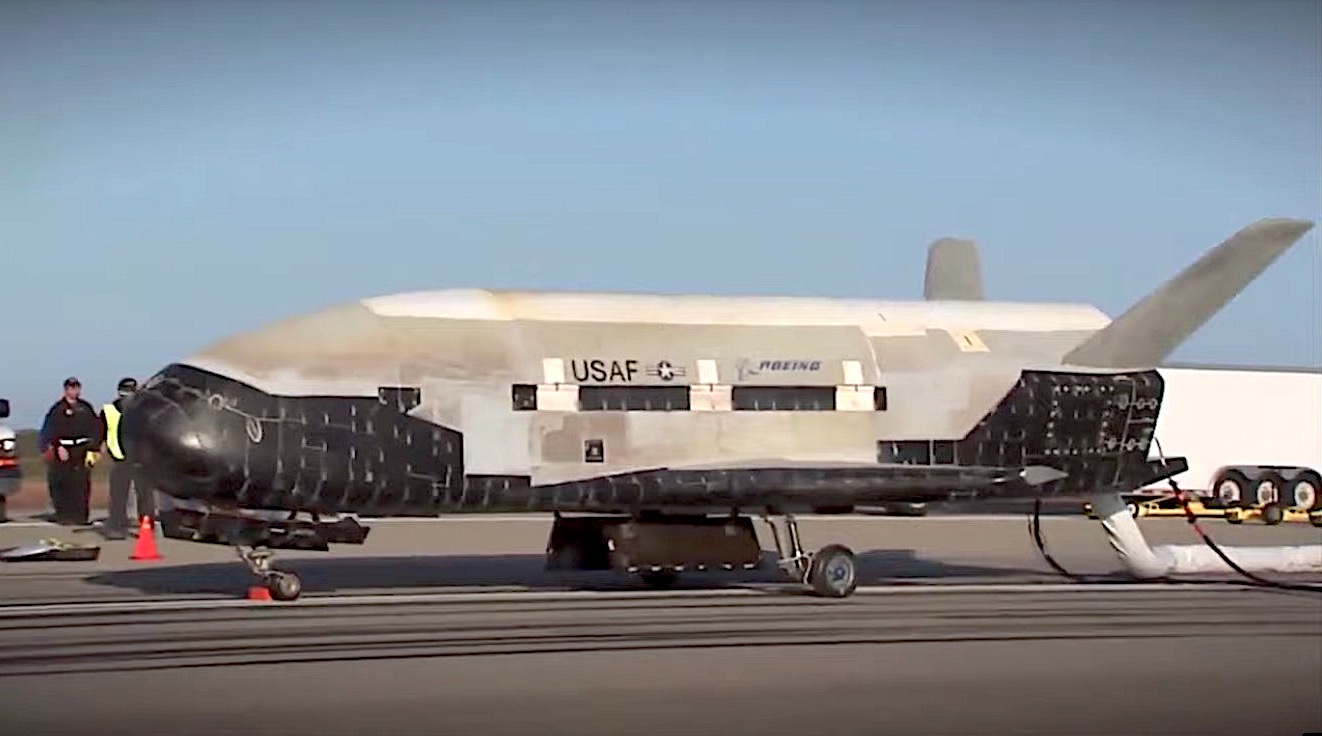The Air Force's secretive X-37B spaceplane just set a new orbit record. Why? That's top secret.


A free daily email with the biggest news stories of the day – and the best features from TheWeek.com
You are now subscribed
Your newsletter sign-up was successful
Next week, the Air Force's unmanned X-37B spaceplane will complete two years in orbit, assuming it doesn't land before then. On Monday, it set a new mission record of 718 days in orbit, surpassing the in-space voyages of its four predecessors. It's likely return date — like almost everything else about the X-37B — is shrouded in mystery. Air Force spokesman Major William Russell tells CNN that there is no scheduled end to the mission, and the spaceplane will land back on Earth only after its objectives have been completed. What objectives? That's classified.
Because the X-37B missions are secret, the Air Force "tends to speak of the vehicle and its activities in general terms," Space.com notes.
We know, for example, that the X-37B is about 29 feet long, launches vertically on a rocket, and lands like an airplane or the now-retired space shuttles. It is also, the Air Force says, part of "an experimental test program to demonstrate technologies for a reliable, reusable, unmanned space test platform," and its "primary objectives" are developing "reusable spacecraft technologies for America's future in space and operating experiments which can be returned to, and examined, on Earth." The experiments include "advanced guidance, navigation, and control," "thermal protection systems," "high temperature structures and seals," "conformal reusable insulation," and "autonomous orbital flight, reentry, and landing."
The Week
Escape your echo chamber. Get the facts behind the news, plus analysis from multiple perspectives.

Sign up for The Week's Free Newsletters
From our morning news briefing to a weekly Good News Newsletter, get the best of The Week delivered directly to your inbox.
From our morning news briefing to a weekly Good News Newsletter, get the best of The Week delivered directly to your inbox.
You can get glimpses of the spaceplane and hear more of the Boeing and Air Force marketing jargon surrounding it in this video:

"The X-37B program tends to attract public interest because of that secrecy," CNN reports, and "speculators have guessed the planes could be involved in spying activities or testing out a space weapon." What is it really doing? "We have no idea," says Matt Novak at Gizmodo. "But given how bad things are going on Earth ... here’s hoping that the Air Force is developing some kind of human escape plan."
A free daily email with the biggest news stories of the day – and the best features from TheWeek.com
Peter has worked as a news and culture writer and editor at The Week since the site's launch in 2008. He covers politics, world affairs, religion and cultural currents. His journalism career began as a copy editor at a financial newswire and has included editorial positions at The New York Times Magazine, Facts on File, and Oregon State University.
-
 The ‘ravenous’ demand for Cornish minerals
The ‘ravenous’ demand for Cornish mineralsUnder the Radar Growing need for critical minerals to power tech has intensified ‘appetite’ for lithium, which could be a ‘huge boon’ for local economy
-
 Why are election experts taking Trump’s midterm threats seriously?
Why are election experts taking Trump’s midterm threats seriously?IN THE SPOTLIGHT As the president muses about polling place deployments and a centralized electoral system aimed at one-party control, lawmakers are taking this administration at its word
-
 ‘Restaurateurs have become millionaires’
‘Restaurateurs have become millionaires’Instant Opinion Opinion, comment and editorials of the day
-
 Nasa’s new dark matter map
Nasa’s new dark matter mapUnder the Radar High-resolution images may help scientists understand the ‘gravitational scaffolding into which everything else falls and is built into galaxies’
-
 Moon dust has earthly elements thanks to a magnetic bridge
Moon dust has earthly elements thanks to a magnetic bridgeUnder the radar The substances could help supply a lunar base
-
 How Mars influences Earth’s climate
How Mars influences Earth’s climateThe explainer A pull in the right direction
-
 The ‘eclipse of the century’ is coming in 2027
The ‘eclipse of the century’ is coming in 2027Under the radar It will last for over 6 minutes
-
 NASA discovered ‘resilient’ microbes in its cleanrooms
NASA discovered ‘resilient’ microbes in its cleanroomsUnder the radar The bacteria could contaminate space
-
 Artemis II: back to the Moon
Artemis II: back to the MoonThe Explainer Four astronauts will soon be blasting off into deep space – the first to do so in half a century
-
 The mysterious origin of a lemon-shaped exoplanet
The mysterious origin of a lemon-shaped exoplanetUnder the radar It may be made from a former star
-
 The 5 biggest astronomy stories of 2025
The 5 biggest astronomy stories of 2025In the spotlight From moons, to comets, to pop stars in orbit
